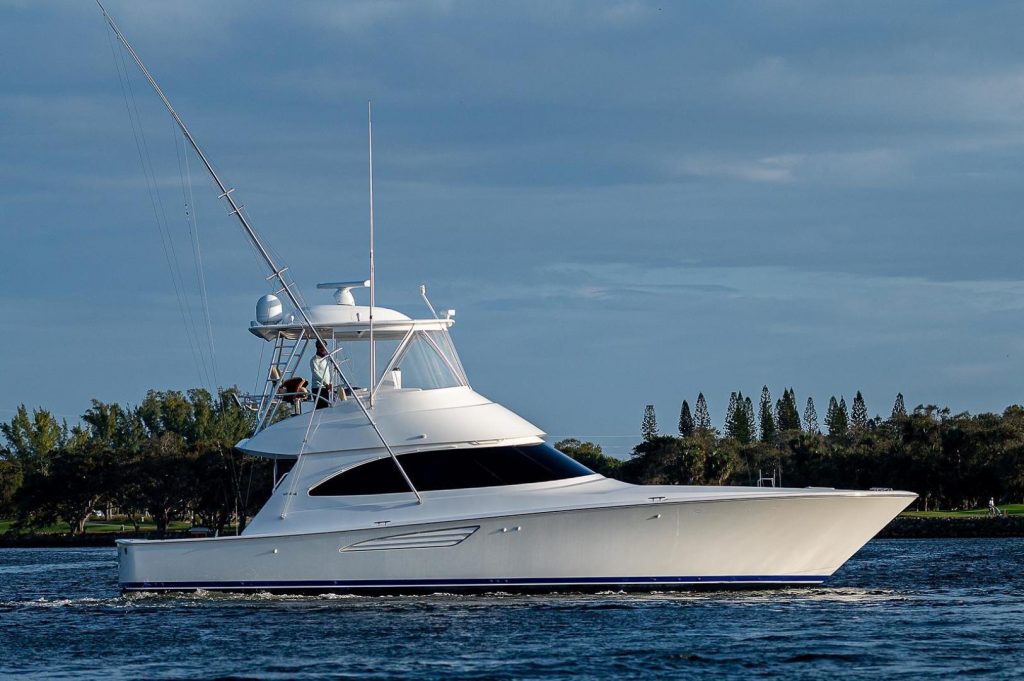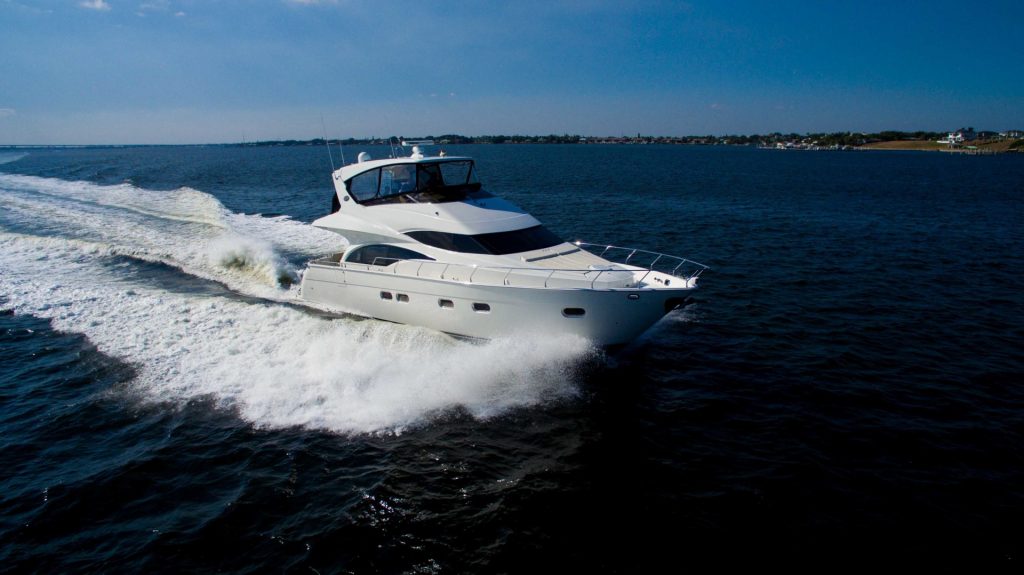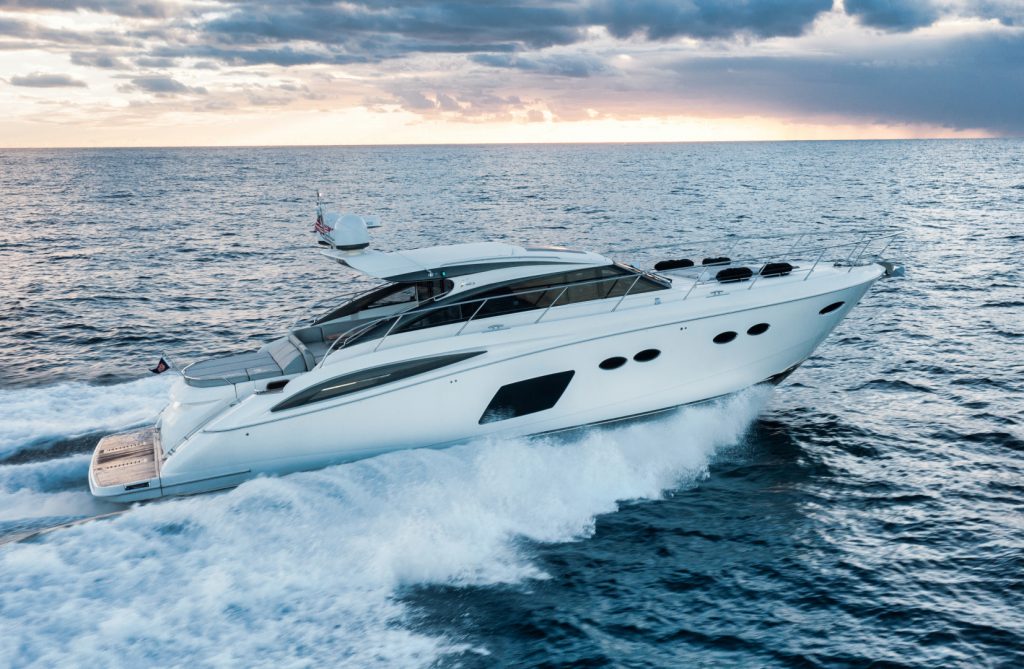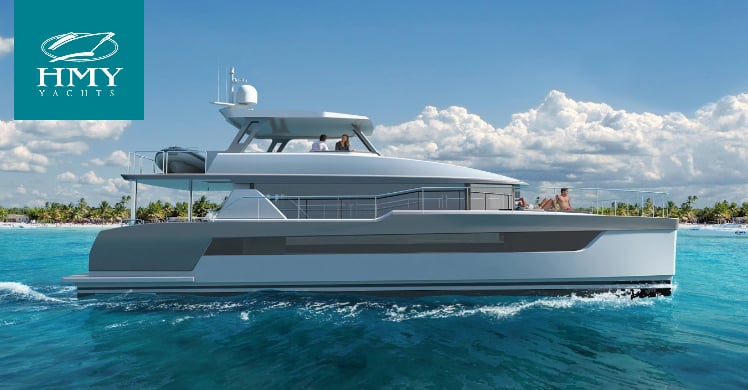
First Time Yacht Buyer? Here’s Your Insurance Roadmap
Finalizing a deal on your dream boat and finally about to become a yacht owner? Congratulations! What an exhilarating moment you’ll cherish forever.
Now for the less fun but incredibly crucial part of creating the ideal insurance coverage to protect your luxury investment, its contents, and your passengers.
It’s important to ensure you have the right type and amount of yacht insurance in place for your journeys. Yacht insurance policies are more elaborate than a regular boat policy, are highly customized, and can vary significantly in coverage. To add another layer of complexity, obtaining insurance as a first-time yacht buyer can be a tricky pursuit because it’s difficult for insurance companies to judge your ability to safely operate a yacht. This is particularly true if you’re jumping into something 50’ or above.

It’s important to spend some time creating a policy that is best for you and will suit your type of yacht, how you plan to use it, and how you store it. Below we explore several components of these policies to take into consideration.
The intricate nature of this process is another important reason to have a trusted broker by your side who can help guide you through the process and use their deep industry network to connect you with best-in-class insurance companies.
*Note: The following information is designed to provide prospective yacht owners with an overview of the yacht insurance process. It should in no way be considered official advice. Owners are advised to consult with an experienced marine insurance broker when acquiring or modifying their policies.
WHAT YOU NEED TO KNOW
Yacht Size
For first-time yacht owners, while it may not be something you want to think about, the size of the vessel will play a big role in determining what kind of policy you may be able to obtain, and from whom. Some carriers may be hesitant to insure a 60’ yacht for an owner-operator who’s never owned a smaller vessel because there’s no demonstrated record of safe boating or knowledge about all the things that go into owning a boat — dockage, maintenance costs, routine upkeep, etc. — that can impact its seaworthiness and value.
At the end of the day, you’ll still be able to get insurance, it just may come at a premium cost and from an overseas carrier such as Lloyd’s of London.
On-Water Experience
First-time owners who expect to drive their own yacht must demonstrate a minimum level of boating know-how. Experience is key and you can never have enough. It’s highly advisable to get some boating experience under your belt, preferably with a similar vessel that you intend to purchase. Fortunately, there are several ways to do this.
- If your friends have boats, get as much experience as you can on theirs.
- Take a hands-on, boating safety course through groups such as The U.S. Coast Guard Auxiliary, United States Power Squadron, BoatUS Foundation, or The National Safe Boating Council (some certifications may earn you a discount on rates).
- Try a regular charter, and eventually, a bareboat charter.
- Hire a training captain for a few days of one-on-one on-water training to learn the ropes of navigation, maritime law, and best practices for high-risk situations.
Whichever course you chose, be sure to log your time out at sea — when, where, and type of boat — in case the insurance carrier asks for confirmation.

Is Insurance Required?
While only a handful of states require yacht owners to obtain insurance, it is highly recommended to have a proper marine policy protecting your new luxury investment, your passengers, yourself, and crucial on-board items and systems. Additionally, many marinas require insurance to use a slip or mooring and you’ll need it if you’re financing the purchase of your yacht.
Types
There are two basic types of yacht insurance policies — Agreed Value and Actual Cash Value.
- An Agreed Value policy costs more upfront and allows you to replace the boat with one that is of equal value if it is a total loss.
- An Actual Cash Value policy costs less upfront, but factors in depreciation and market value so you’ll only get the amount that the boat is worth at the time of the incident.
You’ll want to talk with your insurance carrier to ensure this component of the policy is at least enough to cover the value of the boat.
Insurance Coverage
Two of the biggest things to make sure you have included in your coverage are hull insurance and replacement cost coverage. You also should consider including these in your policy as well:
- Physical Damage from another boat, a fire, or a storm.
- Minimize Liability Risks in case the boat strikes another person or object or one of your passengers gets hurt while on board.
- Boat Theft is more common than you would think.
- Protect Your Pricey Items like fishing and diving equipment, electronics, personal belongings, navigation equipment, and other high-value things.

Insurance Costs
This varies based on things like the boat’s age and condition, and what’s included in the coverage plan, but for new and used yachts, you can typically expect a policy to cost between 1-2% of the value of your boat.
But, if you do purchase a larger vessel and insist on being the owner-operator, you should expect to pay a higher premium.
Discounts are sometimes available for things like having multiple policies through a single insurer, taking a boating safety course, or limiting your boating to a specific geographic area.
Yacht Use & Warranty Breach
In addition to the type and condition of the vessel, insurance carriers will also want to know how and where you plan to use your yacht, as this will help shape the policy.
Want to spend time in the Caribbean? Intending to live aboard your yacht? These disclosures may impact both the premiums charged and your ability to explore. And be aware — if you breach the warranties in the policy, such as promising not to go outside your navigational limits and not to use your boat for anything but private pleasure use, and you experience a loss, you won’t be covered.
Having the right yacht insurance is an important part of ownership. It keeps your sizable investment safe and means you don’t have to worry about anything should an accident occur. Have questions about getting started with insurance research or need recommendations for insurance carriers? Contact HMY today.

